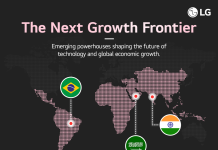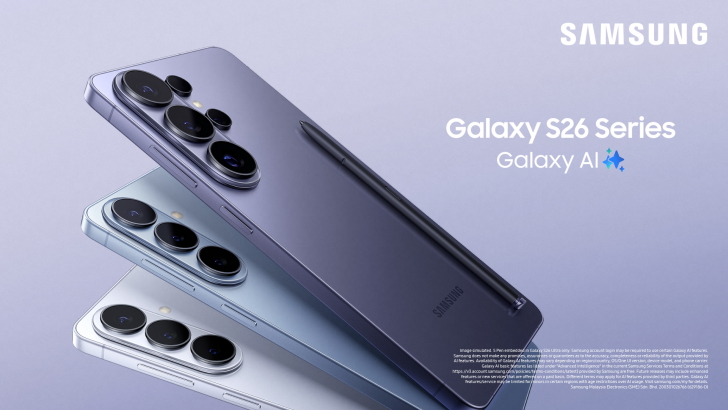Kuala Lumpur, 23 October 2024 – Malaysians see their mobile devices as a gateway to a smarter, safer and more connected life. Easy access to information, learning new skills and better entertainment are just some of the ways people say their mobile use helps in daily life.
With universal smartphone ownership and significant daily usage, mobile connectivity dominates the digital landscape in Malaysia. Daily usage exceeds the average for the Asia Pacific region, leading to greater productivity, social connectivity and smarter financial management. At the same time, the integration of AI into mobile devices has raised the stakes around cyber threats, security measures and data protection.
These topics emerged in the latest Telenor Asia Digital Lives Decoded (Malaysia) 2024 report. As Telenor marks 25 years in Malaysia this year, the third edition of the study focuses on how mobile connectivity is shaping smarter and safer lives in Malaysia. The overall picture to emerge is one of optimism, especially when it comes to adoption of new technologies. For lingering concerns around personal data privacy, the study explores the idea of accountability, asking people where they believe responsibility sits to create a safer digital environment.
“25 years ago, as Telenor embarked on an exciting new venture in Malaysia, we were about to enter a game-changing time for mobile technology. Today, the country is in prime position to capture the opportunities in 5G and AI, and we are excited about the possibilities these new technologies will bring to Malaysia,” Håkon Bruaset Kjøl, SVP Head of Investment Management and Deputy CEO of Telenor Asia, says.
“This optimism is shared, with people telling us the benefits of mobile connectivity outweigh the risks and pointing to the ways AI can have a positive impact on society in the future. To maximise the benefits of digital technologies, people need to have trust in the digital world. Institutions and individuals have a shared responsibility when it comes to building this trust and equipping people with knowledge and tools to better protect themselves online. This study offers a valuable snapshot of the current digital behaviours and attitudes of Malaysians, which can guide policymakers, businesses, and individuals on new growth opportunities and ways to shape a smarter and safer digital future.”
- AI is marking its mark in Malaysia, but building trust is key
The enthusiasm for AI among Malaysians is clear, with 3 in 4 respondents already using AI tools in their daily lives. People are positive about AI’s impact on society, particularly on education, signalling the potential for AI to play a pivotal role in making education more accessible and adaptable to different learning needs. However, job security is a top concern, especially among older generations.
More than 1 in 2 Malaysians (55%) are excited about the possibilities and efficiency that AI can bring to their daily lives, with significant interest in its ability to solve problems, research, and create. However, people’s trust in AI-generated information is divided, with financial and medical advice inviting the greatest scepticism.
As Malaysia sets itself up for a future where AI-integrated devices are automating tasks and offering hyper-personalised experiences, increasing amounts of data from the user will be harvested. To get the most out of AI, responsible use and building trust is key as Malaysian respondents highlight concern related to potential misuse of personal data and spread of misinformation.
- Malaysians take active steps to improve online security, while believing that benefits of mobile use outweigh the risks
Malaysian respondents share many reasons for why the benefits of using a mobile device outweigh the risks. They appreciate being able to stay in touch with loved ones, easy access to information and various ways to entertain themselves as well as increased productivity and a more efficient daily life. They also feel physically safer with a mobile phone. 70% cite the ability to quickly call for help in emergencies as the top benefit, followed by features like GPS and navigation apps helping them to avoid unsafe areas and share their location with family and friends.
Women tend to feel safer knowing they can share their physical location, while men appear to prioritise online safety and security afforded by the mobile phone, placing value on secure mobile payments and security features that protect personal information.
A large majority of Malaysians are also taking active steps to improve the security on their mobile phones or intend to do so in the future. 97% are using at least one privacy measure and 2 in 3 (66%) claim to read privacy notices. Despite this widespread use of privacy tools, nearly 4 in 10 Malaysians continue to worry about how companies use their personal data online. The level of concern around online safety has remained the same in the past five years,
- The privacy paradox persists: Despite concerns, people want the convenience of a connected life
On the flipside, people are aware of the ways in which AI can contribute to a smarter and safer life. 1 in 2 Malaysians say they expect AI smart devices to provide enhanced security and stronger data privacy controls, while 55% think AI can make their mobile more efficient.
Those who worry about their data privacy when thinking about AI integrations are just as likely to believe AI can make their mobile more efficient and to be excited about the new possibilities that AI could bring. This highlights the common privacy paradox: people are concerned about their privacy, yet they are unwilling to give up the daily conveniences that come from allowing technology to track them.
That said, concern over cyber threats is high. Financial scams are the top concern among Malaysians, followed by identity theft, data breaches and deepfakes. 2 in 3 still feel that they lack control over their personal data and 3 in 4 frequently worry about the security of their online accounts. Phishing is also a shared concern, especially among Generation Z.
So, who’s responsible for cybersecurity and protecting online safety? Malaysian respondents are clear that responsibility does not sit solely with them as users. Nearly two-thirds (66%) believe that the government is ultimately responsible for ensuring online safety. This is echoed across generations and indicates a clear public demand for stronger regulatory oversight.
Service providers, such as banks and telecom companies, are also seen as important players, especially for the older generations. People’s opinion remains divided on who is responsible for finding a path to a safer experience. More than half (56.8%) believe that service providers should also take responsibility for online safety, while less than half (47.1%) believe that responsibility falls on themselves.
Håkon Bruaset Kjøl concludes, “It is clear that a collaborative approach to online safety is needed. By prioritising education, awareness, and holding high standards around responsible technology, together we can create a more secure digital landscape that empowers all Malaysians to thrive confidently in the digital age.”


![[Galaxy Unpacked 2026] A First Look at the Galaxy S26 Series: Samsung’s Most Intuitive AI Phone Yet](https://stuffmotion.com/wp-content/uploads/2026/02/New-Project-2-218x150.png)
![[Interview] [Galaxy Unpacked 2026] Maggie Kang on Making Technology Feel Human](https://stuffmotion.com/wp-content/uploads/2026/02/Samsung-Mobile-Galaxy-Unpacked-2026-Maggie-Kang-Interview-Making-Technology-Feel-Human_Thumb728_fina-218x150.jpeg)
![[Galaxy Unpacked 2026] A First Look at the Galaxy Buds4 Series: Precision Sound Meets Intelligent Design](https://stuffmotion.com/wp-content/uploads/2026/02/New-Project-3-218x150.png)
![[Galaxy Unpacked 2026] Highlights From Galaxy Unpacked: The Beginning of Truly Agentic AI](https://stuffmotion.com/wp-content/uploads/2026/02/New-Project-1-218x150.png)











![[Interview] Notes on Seundja Rhee: Translating Nature’s Rhythms Into a Language of Light and Form](https://stuffmotion.com/wp-content/uploads/2026/01/Samsung-TVs-and-Displays-Samsung-Art-Store-Seundja-Rhee-Interview_Thumb728-218x150.jpg)

![[Interview] Erwan Bouroullec Blends Sound and Space With Music Studio](https://stuffmotion.com/wp-content/uploads/2026/01/Samsung-TVs-and-Displays-Bouroullec-Interview_Thumb728-218x150.jpg)














![[Interview] [Galaxy Unpacked 2026] Maggie Kang on Making Technology Feel Human](https://stuffmotion.com/wp-content/uploads/2026/02/Samsung-Mobile-Galaxy-Unpacked-2026-Maggie-Kang-Interview-Making-Technology-Feel-Human_Thumb728_fina.jpeg)


![[Galaxy Unpacked 2026] A First Look at the Galaxy Buds4 Series: Precision Sound Meets Intelligent Design](https://stuffmotion.com/wp-content/uploads/2026/02/New-Project-3.png)


